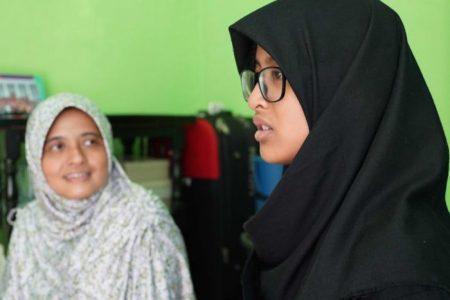
Indonesian family that joined ISIS now is in Iraq
A Jakarta family who joined the Islamic State group in Syria out of an apparently naive belief it would give them a better life is now in Iraq and in contact with the Indonesian government, a senior Indonesian official said Friday.
Deputy Foreign Minister Abdurrahman M. Fachir said that the family of 17, which includes young children and teenagers, is safe but also indicated their journey won’t be straightforward.
The government in Baghdad only controls parts of Iraq and the family’s travel involves dealing with different authorities depending on what region they’re moving through. Some areas are controlled by Iraqi Kurdish troops known as the Peshmerga while others are held by government troops and various militias. The family crossed into Iraq from Syria on Tuesday, a local Kurdish official told The Associated Press earlier this week.
“Our representatives in Baghdad are trying to oversee this process,” Fachir said. “But of course, we have to really understand the situation.”
“There are some regions they have to travel through and each region has its own characteristics,” he said.
Last month, an AP team in the Syrian city of Raqqa met with members of the family who were living in a camp for the displaced and reported on their journey two years ago from Jakarta to IS’s self-proclaimed capital.
They told AP of how their dreams were crushed in the face of IS brutality and terror and how different the reality of life under the militants was from the utopian dream of an Islamic society they had pursued.
Fachir said it’s not clear how long it will take for the family to get back home.
On social media in Indonesia, their story has elicited some sympathy but mostly derision.
Communal tensions and attacks on minorities in the past year have undermined Indonesia’s reputation for practicing a moderate form of Islam, but surveys show the bulk of people are not in favor of hard-line groups that want to replace secular government with a caliphate.
Indonesia’s Foreign Affairs Ministry said earlier this week it had obtained information that the group were not fighters, some had spent most of their time in Syria in IS jails or other isolated conditions, and had fled Raqqa with the help of a third party on June 10.The government has said several hundred Indonesian militants traveled to Syria and Iraq to fight with IS when it controlled large swathes of territory in those countries.
Source: Shafaaq





